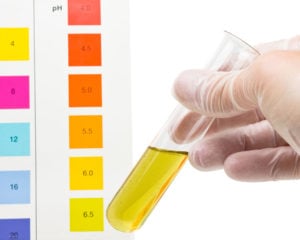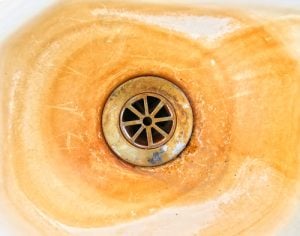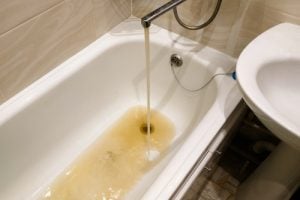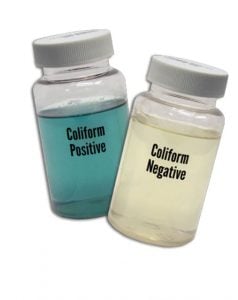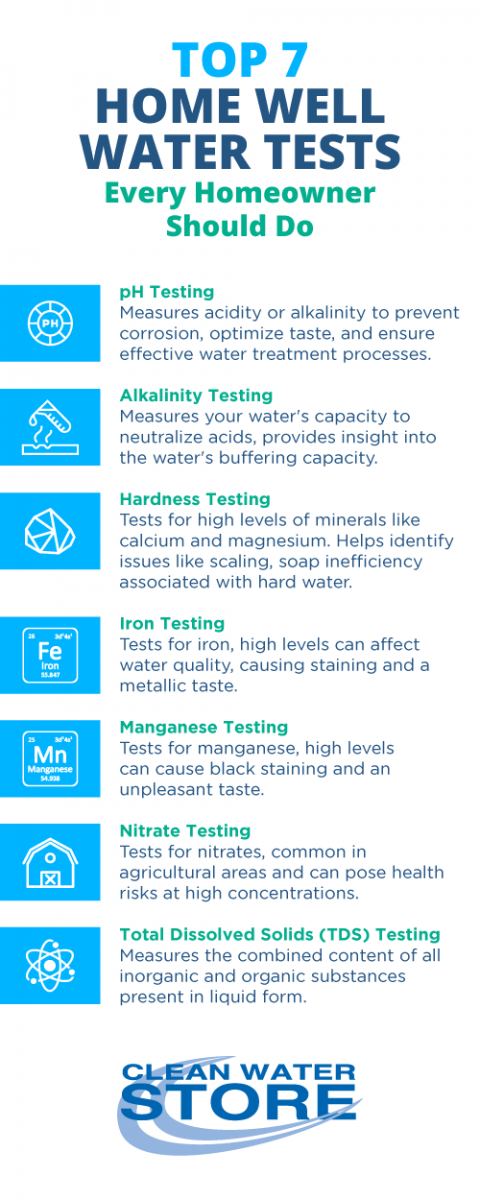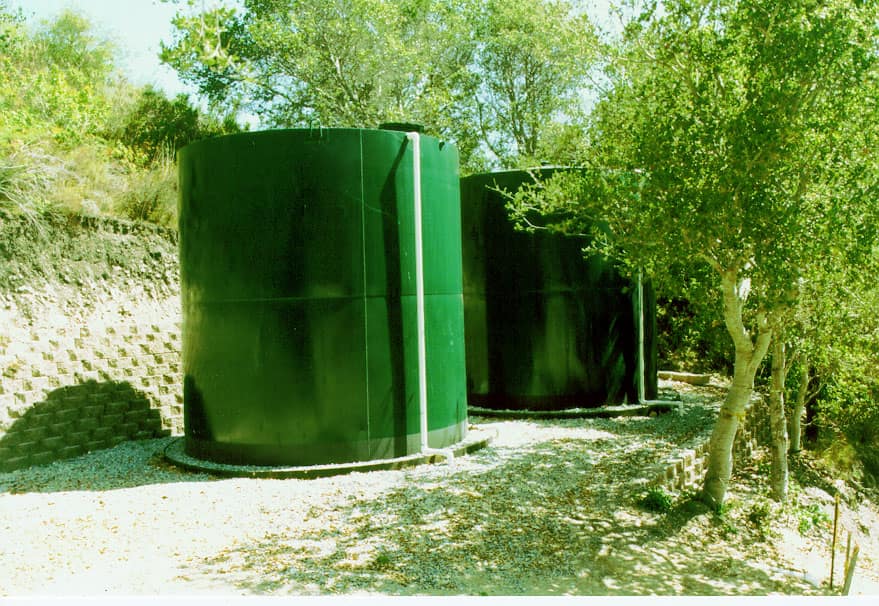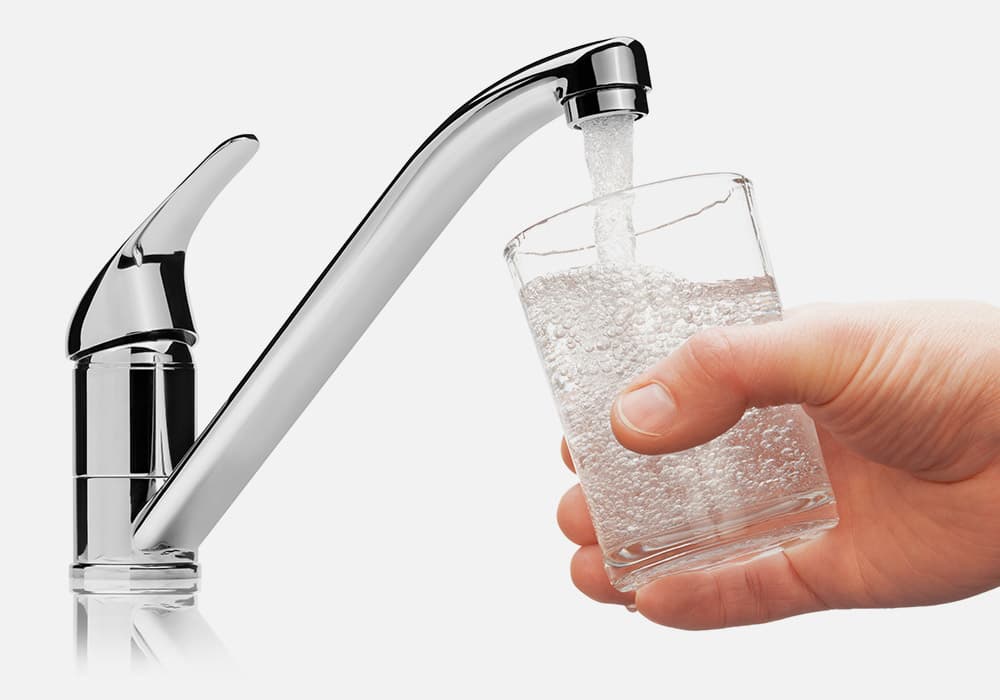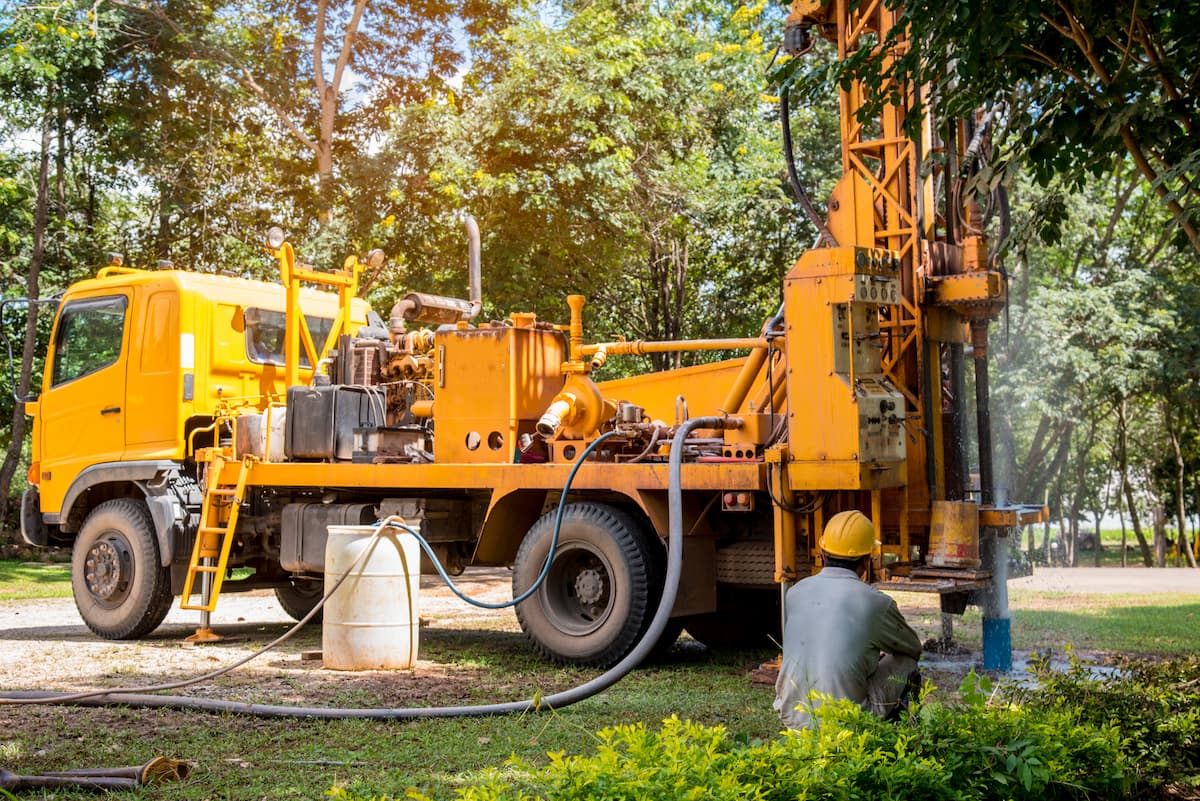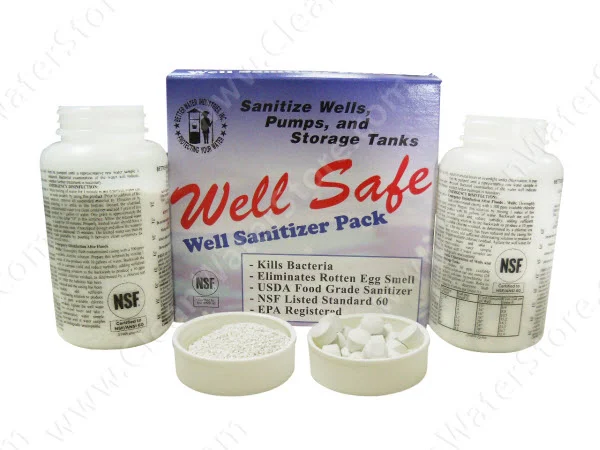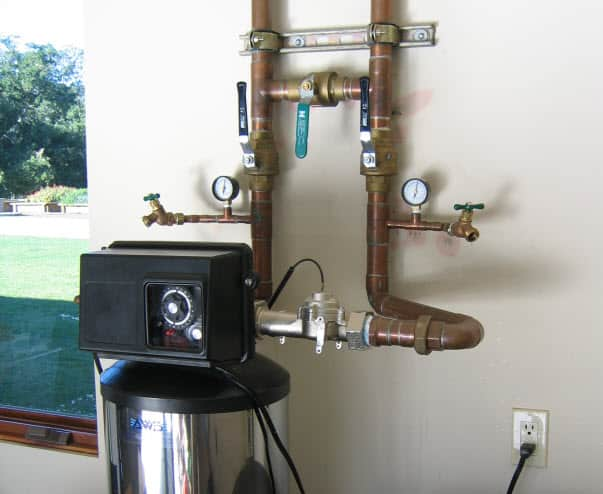Well Water Test Kits: A Guide to the Top 7 for Every Homeowner
Regular testing of your water quality with a well water test kit is vital to ensure it is safe and healthy to use.
As a homeowner, you don't need to rely solely on a lab or have to take a water sample to a lab to learn about water quality or the contamination of your home well or city water source.
Water testing kits are available at low cost that can do multiple tests on your drinking water and give you a detailed analysis.
Here are seven essential well water test kits for common contaminants, and bacteria, you should consider for your tap water:
pH
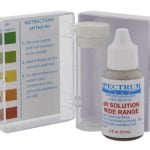
A pH between 7 and 8.5 is a good range. If your pH is less than 7 it is considered acidic and can lead to corrosion (depending on other factors such as hardness and alkalinity, which contribute to corrosion as well).
Alkalinity
Alkalinity measures your water's capacity to neutralize acids. This water test also gives insights into the water's buffering capacity, which helps maintain pH stability and is mainly influenced by the presence of bicarbonate, carbonate, and hydroxide ions.
Hardness
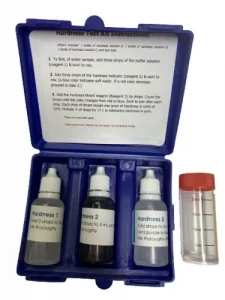
Hard water contains high levels of minerals like calcium and magnesium. A water hardness test will help you and water test kits identify any potential issues like scaling, soap inefficiency, or other problems associated with hard water.
Iron
If your water contains high levels, it can affect your water quality, causing staining, a metallic taste, and other aesthetic problems.
Manganese
Manganese can cause black staining and an unpleasant taste when present at high levels. See one type of manganese test kit here.
Nitrate
Nitrates are commonly found in agricultural areas and can pose health risks, especially to infants and pregnant women, when present in high concentrations.
Nitrate is a chemical that's often found in things like fertilizers used on farms and lawns. It's also created when waste materials, like manure or septic waste, break down.
Here's what you need to know about nitrate levels in drinking water:
The safe standard for nitrate-nitrogen in drinking water is 10 mg/L.
If the water has more than 10 mg/L of nitrate-nitrogen, it's not safe for infants under 6 months old, pregnant women, and women trying to get pregnant to drink. This includes using this water to make baby formula.
This is because high nitrate levels can cause a condition called methemoglobinemia, also known as “blue-baby disease,” which makes it hard for babies to get enough oxygen in their blood. If not treated early, it can be deadly.
Some studies suggest that drinking water with high nitrate levels might also be connected to birth defects and miscarriages.
So, it's important to be aware of nitrate levels in your drinking water, especially if you or someone in your family falls into those sensitive groups. Test your well water yearly for nitrate.
Total Dissolved Solids
Total Dissolved Solids (TDS) Testing TDS is a measure of the combined content of all inorganic and organic substances present in a liquid in molecular, ionized, or micro-granular suspended form.
1. Why is pH Testing a Crucial Aspect of a Water Testing Kit?
pH tests are essential because it determines whether your well water is more acidic or alkaline, impacting its corrosiveness, taste, and the efficiency of water treatment processes.
Acidic water, signified by a pH level below 7, can result in corrosion of pipes and fixtures. In contrast, alkaline water, with a pH level above 7, may lead to deposits on your dishes, clothes, and pipes.
Avoid pH test strips and instead use pH test drops for more accurate tests. You can do many pH water tests with a pH drops test kit. pH test strips may not be as accurate for some samples or give as accurate results.
2. Alkalinity: The Buffering Agent in Your Water
Alkalinity is an often overlooked but crucial aspect of your water's overall water quality too. This attribute represents the measure of your water's ability to neutralize acids, which helps prevent abrupt pH changes.
When the alkalinity level is balanced, it acts as a buffering agent, which can help combat the corrosiveness of metals in the water.
Conversely, low alkalinity might make your water more susceptible to pH changes, leading to potential corrosion of pipes and plumbing fixtures. High alkalinity, on the other hand, could contribute to scaling issues, damaging water fixtures and appliances.
Is Alkalinity a Critical Item in Well Water Test Kits?
Yes, alkalinity is a key feature to monitor as it affects the stability of pH levels in your well water, impacts the performance of water treatment systems, and can lead to potential plumbing issues if not kept in balance.
A well water test kit with alkalinity test strips is essential.
Alkalinity is how well water can fight acids. It won't make you sick. Alkalinity and total hardness are similar because they come from the same minerals and have similar values when measured as mg/L CaCO3.
When we test water, we want the alkalinity to be about 75% to 100% of the total hardness in a sample that hasn't been treated. If the alkalinity is low (less than 150 mg/L), the water might cause damage to the pipes. But if the alkalinity is high (greater than 150 mg/L), it could lead to scaling, which is not good for pipes either.
If the total hardness is less than half of the alkalinity result, it might mean the water went through a water softener. And if the alkalinity is way lower than the total hardness, it could mean there are higher levels of chloride, nitrate, or sulfate in the water.
3. Understanding and Testing Water Hardness to Protect Your Appliances on Private Wells
Hard water can often become the unseen culprit behind many household nuisances, from spotty dishes and dull laundry to a shortened lifespan for your appliances. Water hardness is a pervasive issue that can cause scale buildup in your pipes, water heaters, washing machines, and other appliances, hindering their efficiency and increasing maintenance costs.
It's not just about household chores and appliances; hard water can also affect your personal care. It may cause your soap and shampoo to lather less and leave a residue on your skin and hair.
Test strips for hardness are not as accurate as a comprehensive kit that uses drops. This can also be used for testing pools and pool water. Consistent monitoring is even more important if you have a water softener installed to confirm that the system is working properly.
Is Water Hardness Testing Necessary for the Longevity of Home Appliances?
Yes, it is crucial to maintain the lifespan of home appliances, as hard water can cause scaling and other issues that may damage them. Whether your water source is city water or from a drilled well, this is an important test kit to have.
Hard water contains high levels of minerals like calcium and magnesium.
While these minerals aren't harmful to consume, they can interfere with your home's plumbing system and appliances, leading to scaling, soap inefficiency, and in some cases, appliance breakdowns.
4. How Does Iron in Water Affect Homeowners and How Can It Be Tested?
Rust in your well water can be a real inconvenience, staining laundry and fixtures and giving your water an unpleasant metallic taste. Testing well water for this parameter is straightforward with a home test kit with clear instructions.
What Problems Can Iron in Water Cause for Homeowners?
Whether your water source is city water or from a private well, this can cause a variety of issues. From staining laundry and fixtures with a rusty hue and clogging pipes and appliances to an unpleasant metallic taste, high rust concentration can be more than just an annoyance.
This isn't just an aesthetic issue. It can lead to severe consequences, including damaging your appliances and plumbing system due to scaling and deposits.
Besides the problems it can cause around your home, it's worth noting that while rust in tap water is not harmful to health, it can affect the taste and appearance of food and beverages.
How Can Homeowners Test for Iron in Their Water?
Fortunately, you can easily test for iron in your water at home using a well-water test kit. This water testing kit is an essential tool to have if you're experiencing problems such as rust stains or if you have a filter installed.
Having this type of water test kit also allows you to measure the levels before and after the water passes through your filter, giving you an accurate picture of your filter's effectiveness.
Conducting regular water tests with this type of testing kit helps monitor and maintain the optimal performance of your filter system, ensuring your tap water stays clean and clear especially if you are on private well water.
5. How Does Manganese in Well Water Affect Your Household and Health?
Manganese, a naturally occurring element, is often found in rocks and soil, and it can seep into groundwater and well water. When present in high concentrations, it can impact your household and health in several ways.
High levels of manganese can leave dark stains on your plumbing fixtures, and clothes, and even cause your water to become discolored. Reverse osmosis systems are ruined by manganese.
On the health front, while manganese is an essential nutrient, excessive amounts can have potential health risks.
According to the World Health Organization, high levels of manganese can be harmful if consumed over a long period, leading to neurological issues.
How Can You Test for Manganese in Your Well Water?
A manganese water test is vital to protect your appliances and laundry as well as safeguard the health of your drinking water. You can easily conduct this test at home using a dedicated manganese test kit.
A manganese water testing kit typically includes a testing tube, reagent, and a color chart for comparison. This allows homeowners to assess the presence and concentration of manganese in their water.
6. Why Is Nitrate Testing Crucial for Your Well Water?
Nitrates, common in agricultural regions, can contaminate well water and have significant potential health risks and impacts if ingested in high quantities.
Regular home testing is an effective way to monitor and manage these contaminants in water sources. A drinking water test kit with the ability to test this parameter is an essential concern kit for owners of private wells.
How Can High Nitrate Levels Affect Your Health?
When ingested in large quantities, nitrates are converted into nitrites in the body. Nitrites can interfere with the blood's ability to carry oxygen, causing a condition called methemoglobinemia or “blue baby syndrome” in infants.
Nitrates are a common form of nitrogen, an element essential for plant growth. While beneficial to crops, nitrates can become a concern when they seep into groundwater and end up in your well.
Pregnant women are also at risk as high nitrate levels may affect fetal development. Livestock is also very negatively affected by high nitrate levels.
How Can You Perform Nitrate Testing at Home?
Routine nitrate testing is an essential part of maintaining your well water's safety and quality. Fortunately, you can perform this test in the comfort and safety of your home using a nitrate test kit.
Regular testing allows you to spot any spikes in nitrate levels early, and take necessary corrective actions.
7. Understanding Total Dissolved Solids (TDS) Testing
Total Dissolved Solids (TDS) include all the inorganic substances in your water, including minerals, salts, and metals. High TDS levels can impact water taste and indicate the presence of potentially harmful bacteria or contaminants.
Using a TDS Meter
A TDS meter is a convenient and powerful water utility tool that measures the total salts or minerals in your water.
By using a TDS meter, you can monitor your reverse osmosis system's performance over time, taking necessary action, like a water sample changing the RO system's membrane, when needed.
Are Total Dissolved Solids (TDS) Significant in Assessing Well Water?
Yes, Total Dissolved Solids (TDS) are significant in assessing tap water as they provide insight into the total concentration of dissolved substances in your water source.
Total Dissolved Solids (TDS) refers to the total concentration of dissolved substances in your water. These can be both organic and inorganic substances, including minerals, salts, metals, and other compounds.
The TDS level can affect the taste of your water and, in higher concentrations, it may also affect the efficiency of your water treatment processes.
The Impact of TDS on Water Treatment Systems
If you are using water treatment systems such as water softeners or reverse osmosis filters, understanding your water's TDS level is essential.
Monitoring the TDS level allows you to take timely action to enhance the performance of these systems.
Bonus Test: Coliform bacteria testing is now available in home water testing kits.
In the past, if you wanted to test for bacteria, you would need a sterile water sample and take it to a lab. Now you can test for coliform bacteria and E. coli bacteria in the privacy of your home with a drinking water test kit for total coliform.
Bacteria can occur from leaking septic tanks or cracked well heads and indicate the influence of surface water and be one of those potential contaminants to monitor regularly for in your drinking water.
In conclusion, we highly recommend incorporating these water testing kits into your home water testing kits routine so you can monitor your drinking water and water quality for common contaminants and get accurate results.
For additional information on kits and recommended products to test please contact us.

Also see the U.S. EPA website: https://www.epa.gov/privatewells/protect-your-homes-water

